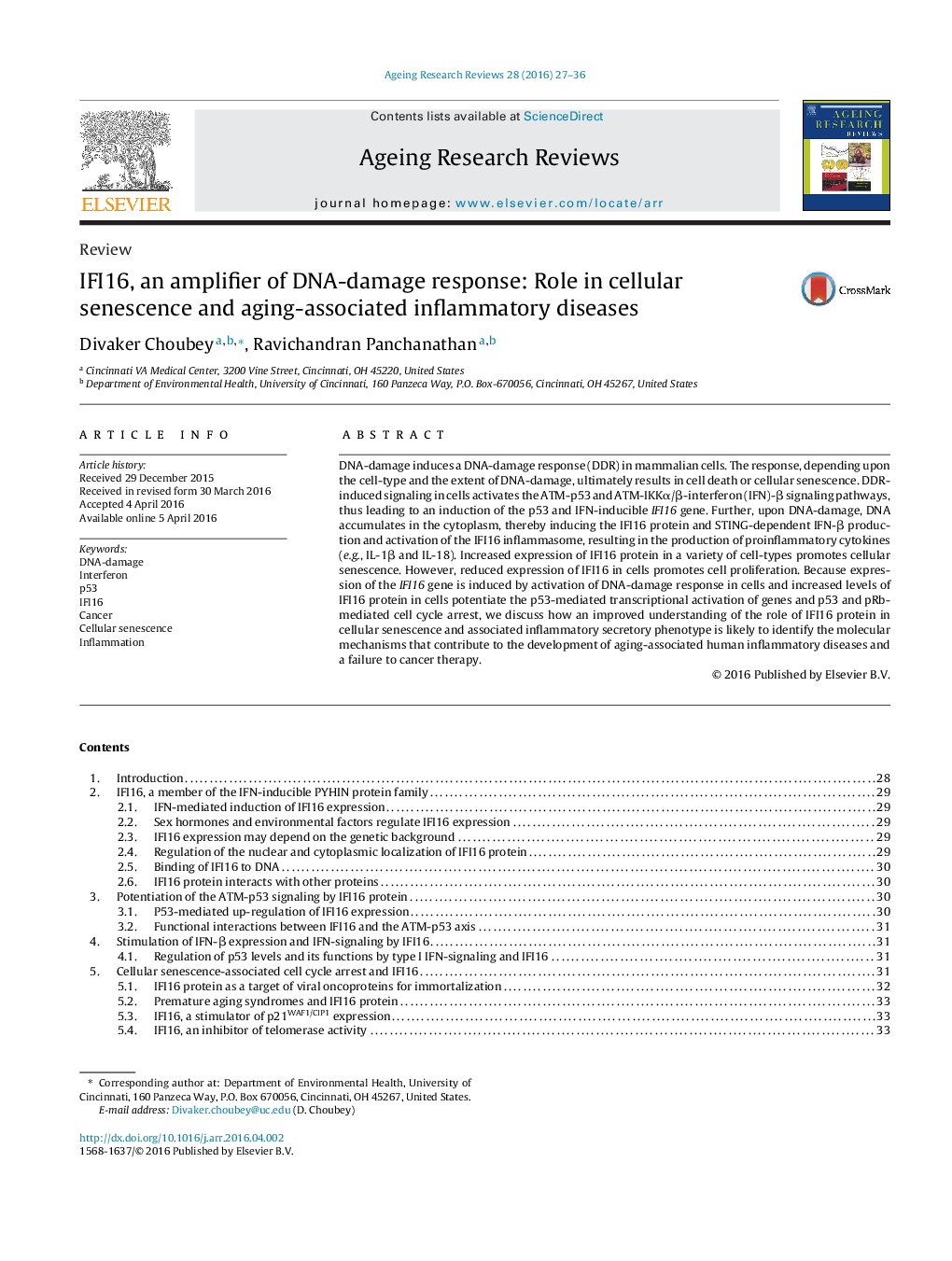| کد مقاله | کد نشریه | سال انتشار | مقاله انگلیسی | نسخه تمام متن |
|---|---|---|---|---|
| 1902163 | 1534305 | 2016 | 10 صفحه PDF | دانلود رایگان |
• Accumulation of senescent cells contributes to aging-related inflammatory diseases in humans.
• Increased levels of IFI16 protein in human cells contribute to cellular senescence.
• Expression of IFI16 protein is induced by activation of p53 and IFN-signaling in cells.
• DNA-damage response induces IFI16 expression through activation of p53 and IFN-signaling.
• IFI16 acts as an amplifier of DNA-damage response to induce permanent cell cycle arrest.
DNA-damage induces a DNA-damage response (DDR) in mammalian cells. The response, depending upon the cell-type and the extent of DNA-damage, ultimately results in cell death or cellular senescence. DDR-induced signaling in cells activates the ATM-p53 and ATM-IKKα/β-interferon (IFN)-β signaling pathways, thus leading to an induction of the p53 and IFN-inducible IFI16 gene. Further, upon DNA-damage, DNA accumulates in the cytoplasm, thereby inducing the IFI16 protein and STING-dependent IFN-β production and activation of the IFI16 inflammasome, resulting in the production of proinflammatory cytokines (e.g., IL-1β and IL-18). Increased expression of IFI16 protein in a variety of cell-types promotes cellular senescence. However, reduced expression of IFI16 in cells promotes cell proliferation. Because expression of the IFI16 gene is induced by activation of DNA-damage response in cells and increased levels of IFI16 protein in cells potentiate the p53-mediated transcriptional activation of genes and p53 and pRb-mediated cell cycle arrest, we discuss how an improved understanding of the role of IFI16 protein in cellular senescence and associated inflammatory secretory phenotype is likely to identify the molecular mechanisms that contribute to the development of aging-associated human inflammatory diseases and a failure to cancer therapy.
Journal: Ageing Research Reviews - Volume 28, July 2016, Pages 27–36
